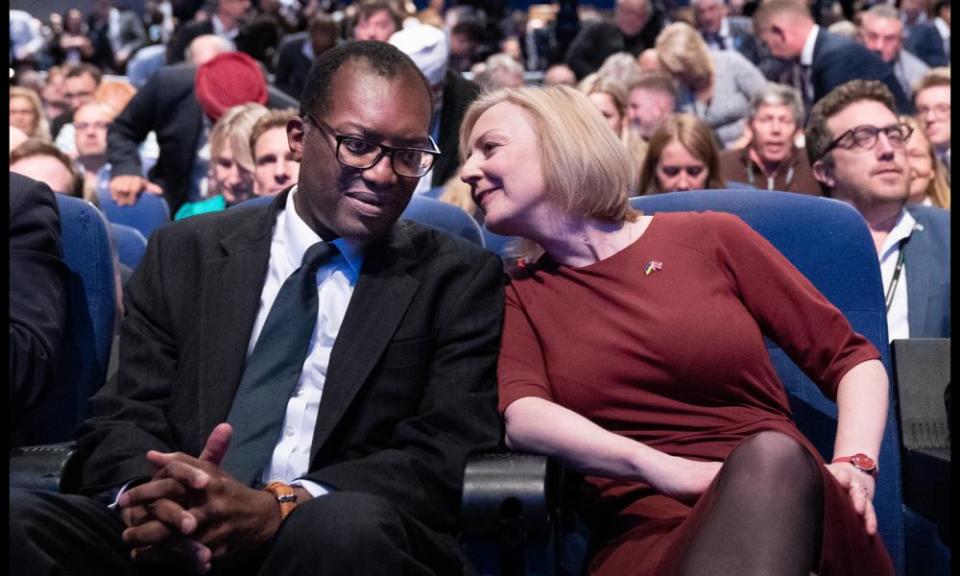Bank of England completes sale of £19bn emergency bond purchases after mini-budget

The Bank of England has finished unwinding the emergency bond-buying scheme it launched to calm the financial markets after Liz Truss’s disastrous mini-budget last autumn.
Threadneedle Street said it had completed the sale of £19.3bn of government bonds three months after it was forced to intervene in markets to halt a run on pension funds.
The Bank made a profit of about £3.5bn through the disposals, according to Bloomberg. Amid a rise in government bond prices in recent months, the sale process began on 29 November and was completed on Thursday.
The central bank stepped in with a promise to pump up to £65bn into financial markets after the mini-budget unveiled by Truss’s then chancellor, Kwasi Kwarteng, caused financial turbulence and fears of a 2008-style financial crisis.
“The purchases were made to restore orderly market conditions following dysfunction in the UK gilt market, and in doing so reduce risks from contagion to credit conditions for UK households and businesses,” the Bank said.
Funds linked to the pension schemes of retired people across Britain came under severe strain as bond markets sold off sharply after the tax and spending announcement, with the Bank warning that a “large number” risked going bust if there was no intervention.
The Bank’s governor, Andrew Bailey, has directly linked the market chaos to the mini-budget, despite efforts by the Truss administration to blame global factors behind the sharp rise in the yield – or interest rate – on UK government bonds.
Bond yields had been rising across advanced economies amid the fallout from high inflation and as major central banks raised interest rates. However, City analysts said Britain was as an international outlier, with the country suffering a “moron premium” as global investors lost confidence in the Truss government’s ability to manage the economy and public finances.
The yield on 30-year UK government bonds hit the highest level since the 2008 financial crisis, rising by more than 1 percentage point in a matter of days to a peak of almost 5% after the mini-budget. Yields have since fallen back to about 3.7%.
Threadneedle Street said it had sold £12.1bn in long-dated conventional gilts and £7.2bn of index-linked gilts.
The Bank is also in the process of selling billions of pounds in government bonds bought under its quantitative easing scheme, which was launched after the 2008 financial crisis, then expanded after the Brexit vote and during the Covid pandemic to support the economy.
In December, the Bank said it had cut the total stock of assets bought under quantitative easing to £844bn, down from a peak of £895bn. Threadneedle Street is expected to chalk up a substantial loss on the unwinding of the QE scheme, with estimates showing taxpayers on the hook for more than £100bn.

 Yahoo Finance
Yahoo Finance 